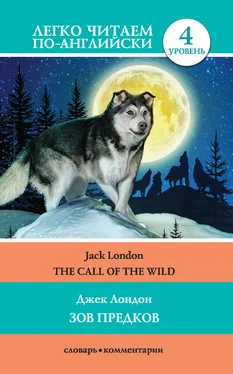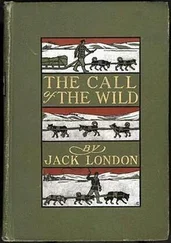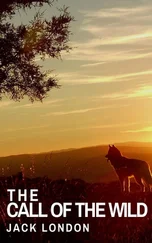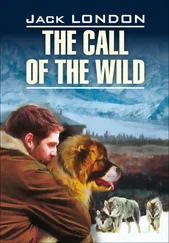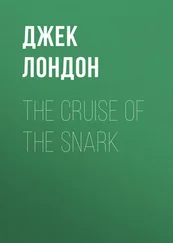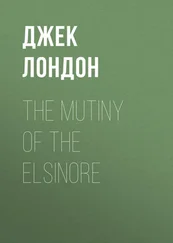By afternoon, Perrault, who was in a hurry to be on the trail with his despatches, returned with two more dogs. “Billee” and “Joe” he called them, two brothers, and true huskies both. But they were as different as day and night. Billee’s one fault was his good nature, while Joe was the very opposite. Buck met them in friendly fashion, Dave ignored them, while Spitz fought with both of them.
By evening Perrault brought another dog, an old husky, long and thin, with scars on his face and a single eye. He was called Solleks, which means the Angry One. Like Dave, he asked nothing, gave nothing, expected nothing; and even Spitz left him alone. He did not like to be approached on his blind side. When it happened, Solleks rushed upon Buck and slashed his shoulder to the bone. Forever after Buck avoided his blind side, and to the last of their comradeship had no more trouble. His only seeming ambition, like Dave’s, was to be left alone; though, as Buck was later to learn, each of them had one other and more vital ambition.
That night Buck faced the great problem of sleeping. When he, naturally, entered the tent, Perrault and Francois threw him out. A chill wind was blowing outside. He lay down on the snow and attempted to sleep, but it was too cold. Miserable, he walked about among the tents. Here and there dogs rushed upon him, but he bristled his neck-hair and snarled (for he was learning fast), and they let him go his way.
Finally an idea came to him. He would return and see how his own team-mates were doing it. To his astonishment, they had disappeared. If they were not in the tent, where could they possibly be? Suddenly the snow sank beneath his legs. Something moved there. He sprang back, bristling and snarling, fearful of the unseen and unknown. But a friendly little yelp came to him, and he went back. A portion of warm air got to his nose, and there, curled up under the snow, lay Billee. He whined in a friendly way and even dared to lick Buck’s face with his warm wet tongue.
Another lesson. So that was the way they did it? Buck chose a place, and with much waste effort dug a hole for himself. The heat from his body filled the space under the snow, and he fell asleep. The day had been long and nervous, and he slept soundly, though he growled and barked and had bad dreams.
In the morning, at first he did not know where he was. It had snowed during the night and he was completely buried. He felt the fear of the wild animal for the trap. It was a sign that he was going back to the lives of his ancestors; for he was a civilized dog, and of his own experience knew no trap and so could not himself fear it. His muscles worked spasmodically and instinctively, and with a awful snarl he jumped straight up. Before he landed on his feet, he saw the camp before him and knew where he was and remembered everything from the time he went for a walk with Manuel to the hole he had dug for himself the night before.
A shout from Francois greeted his appearance. “What I say? That Buck learns quickly.”
Perrault nodded. As a courier for the Canadian Government, bearing important despatches, he was anxious to have the best dogs, and he was particularly glad that he had Buck.
Three more huskies were added to the team within an hour, making a total of nine, and in quarter of an hour they were in harness and on the trail toward the Dyea Canon. Buck was glad to be gone, and though the work was hard he found he did not dislike it. The eagerness of the whole team communicated to him; but more surprising was the change in Dave and Solleks. They were totally transformed by the harness. All passiveness was gone from them. The toil of the traces seemed all that they lived for, the only thing in which they took delight.
Dave was a wheeler, pulling in front of him was Buck, then came Solleks; the rest of the team was ahead, in a single file, [19] in a single file – друг да другом, в одну линию
to the leader, Spitz.
Buck had been placed between Dave and Solleks so that he might receive instruction. He was a good learner, and they were good teachers. Once, during a stop, when he got tangled in the traces and delayed the start, both Dave and Solleks flew at him and gave a good trouncing. [20] to give a good trouncing – задать хорошую трепку
The resulting tangle was even worse, but Buck kept the traces clear from that moment on, so Francois’s whip snapped less frequently, and Perrault even honoured Buck by examining his feet.
It was a hard day’s run. They made their way past mountains, forests, glaciers and down the chain of lakes which fills the craters of dead volcanoes, and late that night arrived to the huge camp at the head of Lake Bennett, with thousands of goldseekers. Buck made his hole in the snow and slept the exhausted sleep.
Next day they made forty miles, as the trail was packed; but the next day, and for many more days, they were not so successful. As a rule, Perrault travelled in front of the team, packing the snow with webbed shoes [21] packing the snow with webbed shoes – утаптывая снег снегоступами
to make it easier for them. Francois sometimes exchanged places with him, but not often. Perrault was in a hurry, and he prided himself on his knowledge of ice.
Day after day, since dawn till evening, Buck toiled in the traces. After darkness, in the camp, they ate their bit of fish. Buck was hungry. The pound and a half of sun-dried salmon, which was his ration for each day, seemed to go nowhere.
Buck found that his mates, finishing first, robbed him of his unfinished meal. So he started to eat as fast as they, and even could take what did not belong to him. He watched and learnt. When he saw Pike, one of the new dogs, a clever thief, steal a slice of bacon when Perrault’s back was turned, he did the same. He was unsuspected; while Dub, who was always getting caught, was punished instead.
This first theft showed that Buck was fit to survive in the hostile Northland environment. It showed his adaptability, the lack of which would have meant a quick and terrible death. It also showed the decay of his moral nature, a useless thing in the struggle for existence. It was well enough in the Southland, under the law of love and fellowship, to respect private property and personal feelings; but in the Northland, under the law of club and fang, it was foolish.
Not that Buck understood it. The club of the man in the red sweater had beaten into him a fundamental and primitive code. Civilized, he could have died for a moral consideration. Now, he did not steal for joy of it, but because of hunger. He stole secretly, out of respect for club and fang. In short, the things he did were done because it was easier to do them than not to do them.
His development (or retrogression) was quick. His muscles became hard as iron, and he was now careless to ordinary pain. He achieved an internal as well as external economy. He could eat anything. Sight, scent and hearing became remarkably keen. He learnt to bite the ice out when it collected between his toes; and when he was thirsty and there was ice over the water, he broke it with his fore legs.
And not only he learnt by experience, but instincts long dead became alive again. The vague memory told him of the time the wild dogs ran in packs [22] a pack – зд. стая
through the forest and killed their meat. He learnt to fight in the wolf-like fashion, like his ancestors had fought. And when, on the still cold nights, he pointed his nose at a star and howled long and wolf-like, it was the voice of his ancestors, howling through the centuries and through him. And his troubles were their troubles. This ancient song went through them and became his own again; the song about how men had found a yellow metal in the North, and of Manuel, a gardener’s helper, whose salary did not cover the needs of his wife.
Читать дальше
